‘I will never forget watching my unarmed son being shot dead by a man who claimed self-defence’
In the decade since Trayvon Martin was killed by someone who claimed self-defence, hundreds have lost their lives because of ‘stand-your-ground’ laws. One family shares their story with Andrew Buncombe

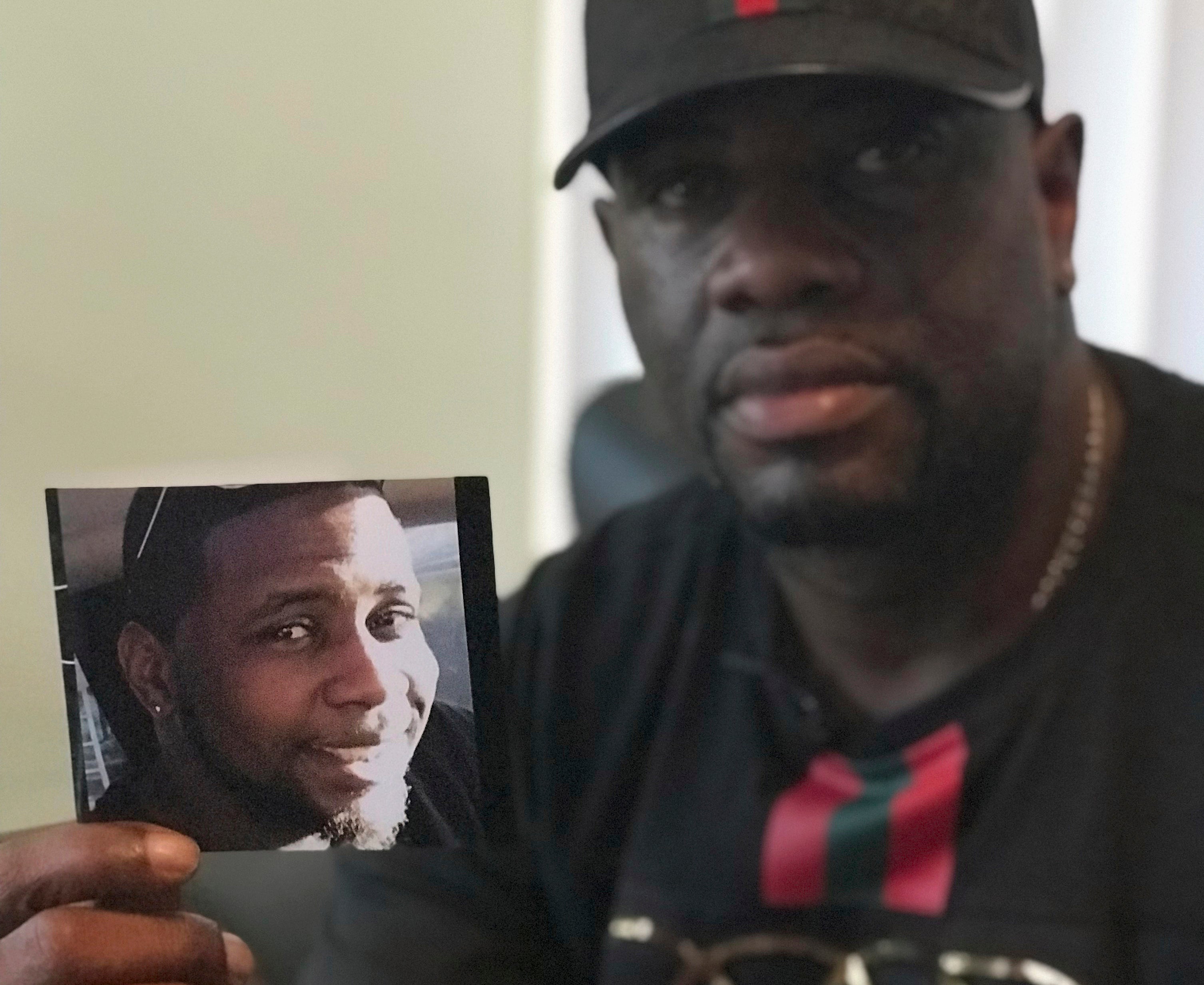
Michael McGlockton says he will never be able to forget watching the video that showed his unarmed son being shot dead. Markeis McGlockton was 28 and had three children. They were all there, along with their mother, Brittany Jacobs, when he was killed by a man called Michael Drejka, who had argued with Jacobs over her parking spot.
Video footage captured at the convenience store in Clearwater, Florida, on 19 July 2018 shows him coming out of the store after being told his partner was being harangued. It shows McGlockton, who was black and unarmed, forcefully pushing Drejka to the floor. Seconds later, Drejka, still on his knees, pulls out a handgun and aims it McGlockton, who backs away several steps. Seconds later he pulls the trigger.
The footage shows McGlockton being struck once, in the chest, and then running inside the store, partly bent over, where he collapsed in front of his five-year-old son. He would be pronounced dead 30 minutes later.
Drejka, who was white, was questioned by police and he told them he feared for his life. That evening Drejka was permitted to go home, and the following day Pinellas County sheriff, Robert Gualtieri, told a press conference that police did not intend to charge Drejka, citing Florida’s stand-your-ground rule, even citing for reporters Florida Statute 776.032. Indeed, under that law the police did not even have the right to arrest him.
“I don't make the law,” said Gualtieri. “We enforce the law and I'm going to enforce it the way it's written the way the legislature is intended for it to be applied. And others can have the debate about whether they like it or not.”
The shooting of McGlockton was one of hundreds of incidents in which people, disproportionately people of colour, have lost their lives as a result of stand your ground laws, in the decade since the shooting dead of teenager Trayvon Martin.
Ten years ago, the 17-year-old was shot dead as he walked home from a local store in the city of Sanford, 30 miles north of Orlando, where he had bought a can of iced tea and a packet of Skittles. He was shot by a neighhourhood watch coordinator, George Zimmerman, who had wanted to be a police officer and who told officers that the teenager, wearing grey hoodie looked “suspicious”.
“He’s got his hand in his waistband, he’s black,” Zimmerman had said. “These assholes always get away with it.”
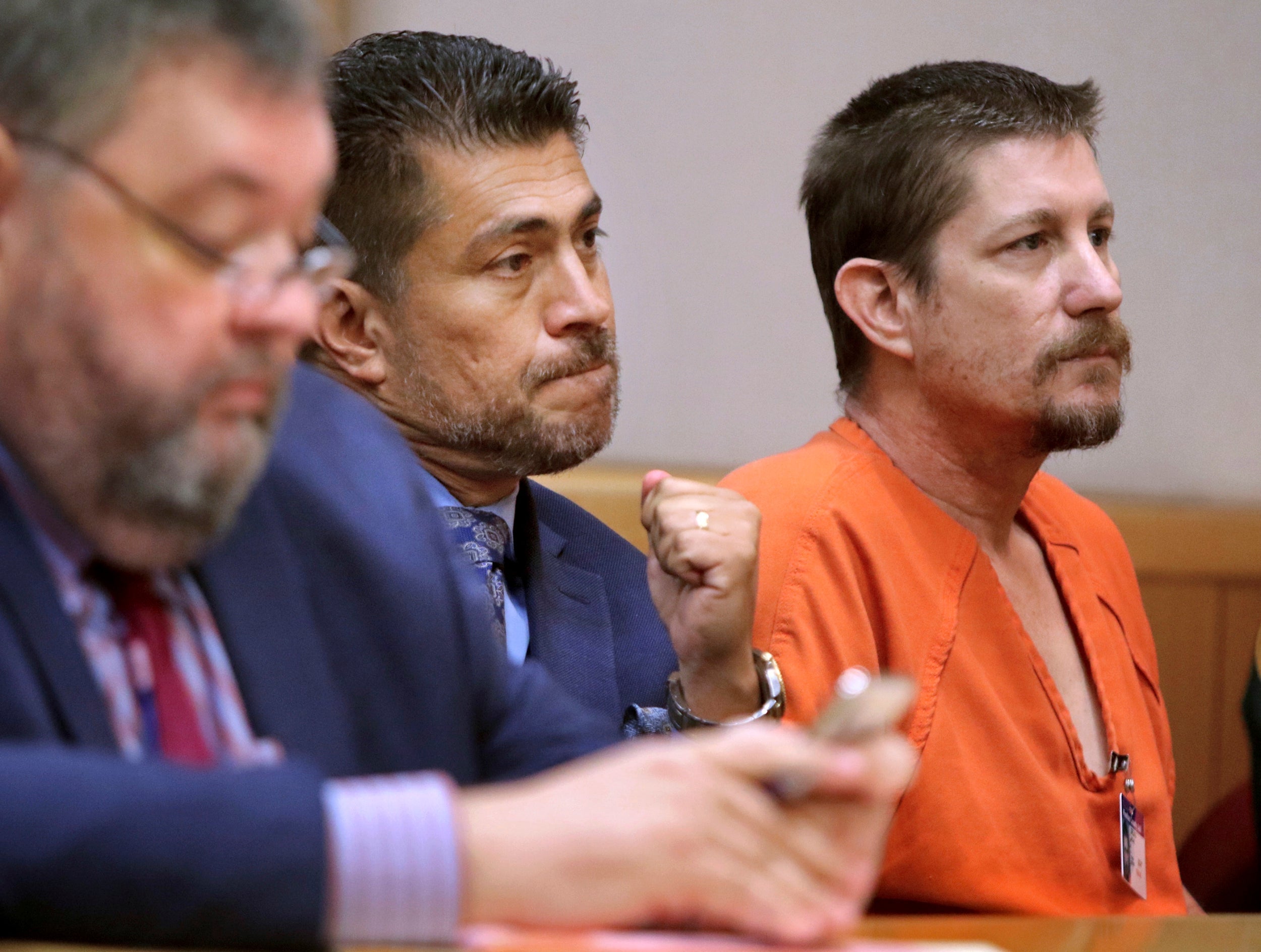
The shooting dead of the unarmed teenager led to no amount of soul searching across the United States. The incident and the subsequent acquittal of Zimmerman, who was eventually charged with manslaughter, led to widespread protests. It would lead to the creation of the activist group Black Lives Matter, by three women of colour, who felt outraged by the news. At the White House, Barack Obama, the nation’s first black president, said the episode had made him think of the safety of his own children.
When Zimmerman was found not guilty in the summer of 2013, Obama would return to the issue. He said he did not want to get into any judgment of the trial, or even the law. Yet he added: “When Trayvon Martin was first shot I said that this could have been my son. Another way of saying that is Trayvon Martin could have been me 35 years ago.
“And when you think about why, in the African American community at least, there’s a lot of pain around what happened here, I think it’s important to recognise that the African American community is looking at this issue through a set of experiences and a history that doesn’t go away.”
‘That is not self-defence’
Four years later, when Markeis McGlockton was shot dead, killed by a white man who would claim he was defending himself, his family was bewildered. How could the police say that Drejka was acting in self-defence, when he was the one with a gun? How could the police let Drejka go home that evening, just as the officers in Sanford had done with Zimmerman. How could the police once again cite Florida law to claim their actions were limited?
Had nothing changed? Had the protests over the deaths of Eric Garner and Michael Brown, Sandra Bland and countless others, counted for nothing?
Brittany Jacobs, the dead man’s partner, hired Ben Crump, the civil rights attorney to represent her and to try to press for justice. The dead man’s parents, Michael McGlockton and Monica Moore-Robinson, were put in touch with a local attorney, Michele Rayner-Goolsby. She and Crump worked together, with the aim of putting pressure on state and even federal authorities, to launch their own investigation. It had been people pressure that forced the hand of the authorities in the case of Zimmerman.
“You cannot provoke a fight and then hide behind Stand Your Ground,” Rayner-Goolsby said at press conference the family held. Looking back to the case, Rayner-Goolsby tells The Independent she had been attending a protest when she heard the McGlockton family was searching for a lawyer.
“It took 25 days for the killer to be arrested, it was 25 days of protest, it was 25 days of civil disobedience, it was 25 days of letters and calls and action and pushing forward to that,” says Rayner-Goolsby, who in 2020 was elected to the Florida legislature and is currently running for Congress.
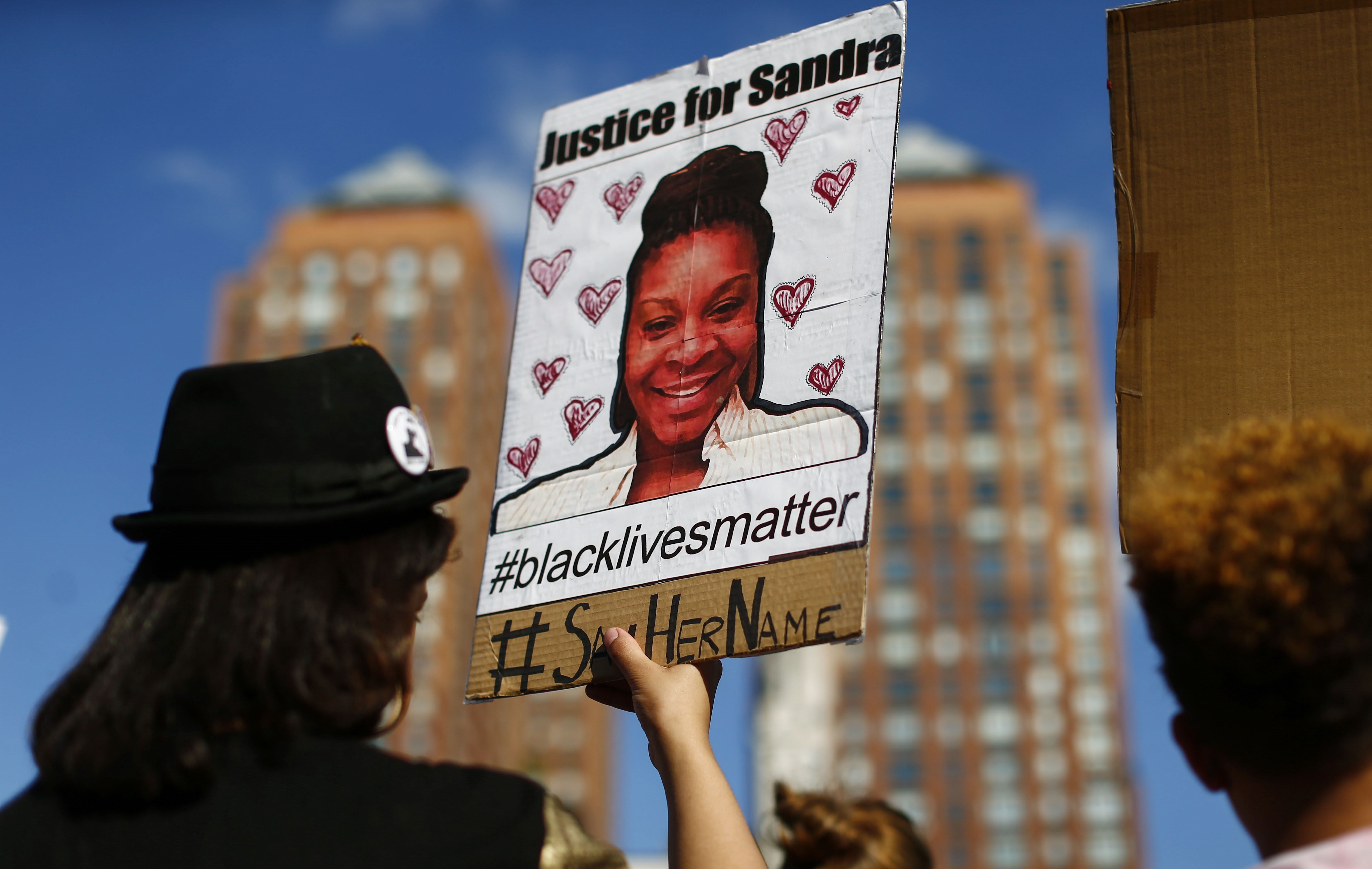
“We'd always say pressure busts pipes, because the Sheriff of Pinellas County basically said he didn't think that a crime had been committed.”
Rayner-Goolsby says in addition to whatever role racism may have played in the process, she believes that under changes to stand-your-ground laws police can be sued if a court later rules the indictment, which may have made them reluctant. Fortunately, she says, the state prosecutor reviewed the video and decided there were grounds to bring a charge. She agrees with McGlockton’s father that the struggle simply to have charges should not have been necessary.
“It’s otherworldly, how we consider an arrest, and then a charge and then ultimately a conviction as justice. And at every step, black and brown folks in this country are holding their breath to see what's going to happen,” she says.
She says the recent conviction of Kim Potter, a former Minnesota police officer found guilty of the manslaughter of 20-year-old Daunte Wright, was a case in point. Potter was only sentenced to two years in jail, something the young man’s mother likened to be “being murdered” by the justice system.
“The judge had more sympathy for the officer than the victim and his family,” she says. “So even though she was convicted, the sentence was hollow, because the sentence did not fit the crime.” She adds: “And we know as black and brown folks in America, if we were Kim Potter, we would not have got a sympathy sentence of two years.”
Three weeks later, after massive media attention and the protests by civil rights groups across the country, authorities announced that following a review of the video footage by the Florida State Attorney’s Office, Drejka was to be charged with a single count of first-degree manslaughter.
A jury would eventually reject his claim of self-defence and find him guilty. He was sentenced to 20 years in jail, after judge Joseph Bulone ruled Drejka was a “wannabe law enforcement officer” and self-nominated “handicapped parking space monitor”.
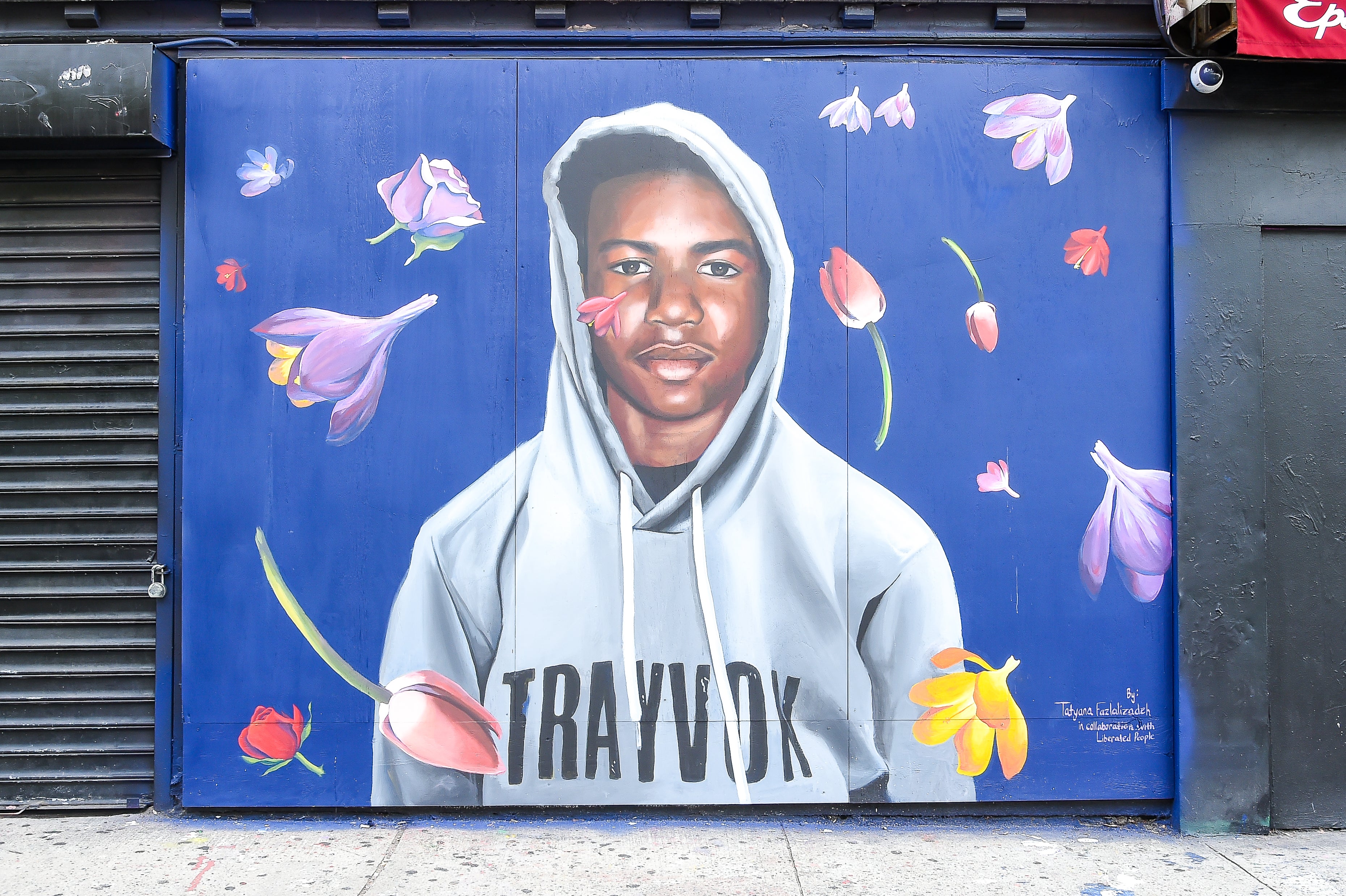
‘A crazy number of deaths’
Campaigners for gun safety and racial justice argue that so-called stand-your-ground laws, purportedly introduced to protect the public, do the opposite. The laws – which appeared first in Utah in 1994 and Florida in 2005, where it was signed into law after lobbying from the National Rifle Association – now operate in 38 states.
Study after study has suggested the laws have led to more people being killed. An analysis of data by the group Everytown for Gun Safety found that an additional 150 people lost their lives every month as a result of the passage of stand-your-ground legislation. It also calculated that from 2014 to 2018, in states where the law existed, homicides were deemed justifiable five times more frequently than when the shooter was black and the victim white.
One of the most staggering studies was published in 2019 in the Journal of the American College of Surgeons, and compared the five years before states began enacting these laws – 2000 to 2004 – to the 13-year period following their enactment, 2005 to 2017. It calculated that justifiable firearm homicide rates increased by around 55 per cent in states that enacted the laws.
A recent study published in JAMA Network Open, found stand-your-ground laws were linked to an 11 per cent increase in monthly firearm homicide rates, which equated to 700 additional deaths each year.
“It’s 700 additional homicides each year that could have been prevented,” said Michelle Degli Esposti, a postdoctoral researcher at the University of Oxford and the study’s lead author. She added: “It’s crazy if you think every one is a devastating death.”
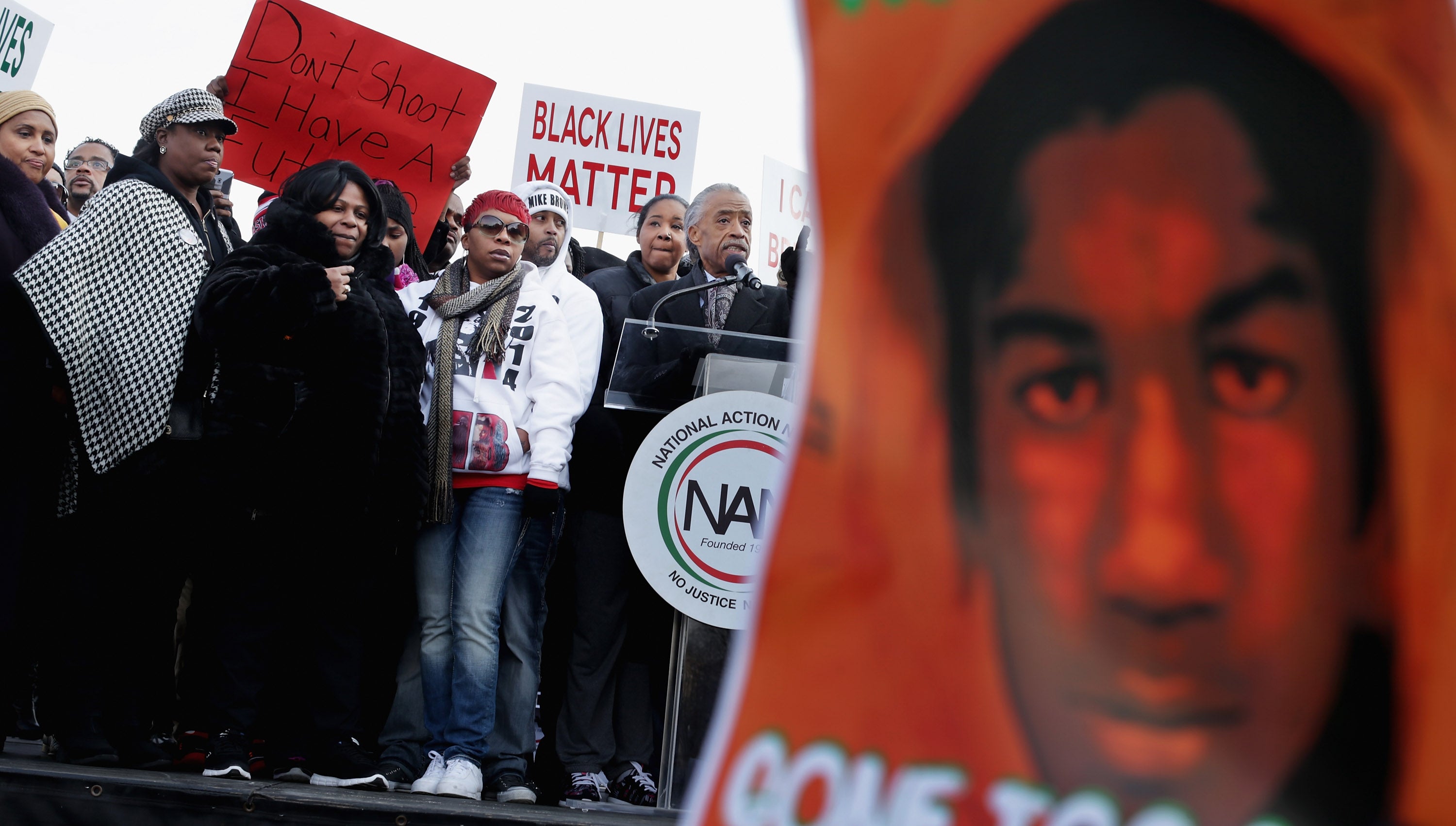
‘Why do we have to be the ones who protest’
Devastating would be one of the many words used by the family of Markeis McGlockton to describe how they felt. McGlockton’s father was among those who sat and examined the footage with the family lawyer as they demanded that charges be brought.
Four years later, he says he does not believe he will ever be able to forget watching his son being shot and killed.
“When I spoke to Brittany, she was trying to tell me what happened. But it wasn't really until I really the videotape of it that I knew that wasn't self-defence,” he tells The Independent. He says the campaign he and other relatives led to try to force the authorities to charge authorities should not have been necessary.
“I feel that if there's ever a case where somebody has shot dead, then whoever did the shooting should be arrested. At the least, he should be arrested and detained downtown. Michael Drejka did not get that treatment. They let him go home.”
He says he has no doubt in his mind, police treated Drejka differently because he was white. “If it was a black guy shooting a white guy, they're not going to ask any questions. They're going to take that black guy downtown,” he says.
“They're going to arrest him, and basically, he going to sit there until his trial, or until he gets a bond. They didn't do that with Drejka.”
McGlockton says he has witnessed many instances where police have been called to intervene in a fight between a black man and a white person, and it is invariably the black person who is put in handcuffs and arrested.
“That man shot and killed my son and it took three weeks, a month to charge him,” he says. “Why do black people have to march, to protest, just to get the police to do their jobs. White people don’t have to march. That is the difference right there.”
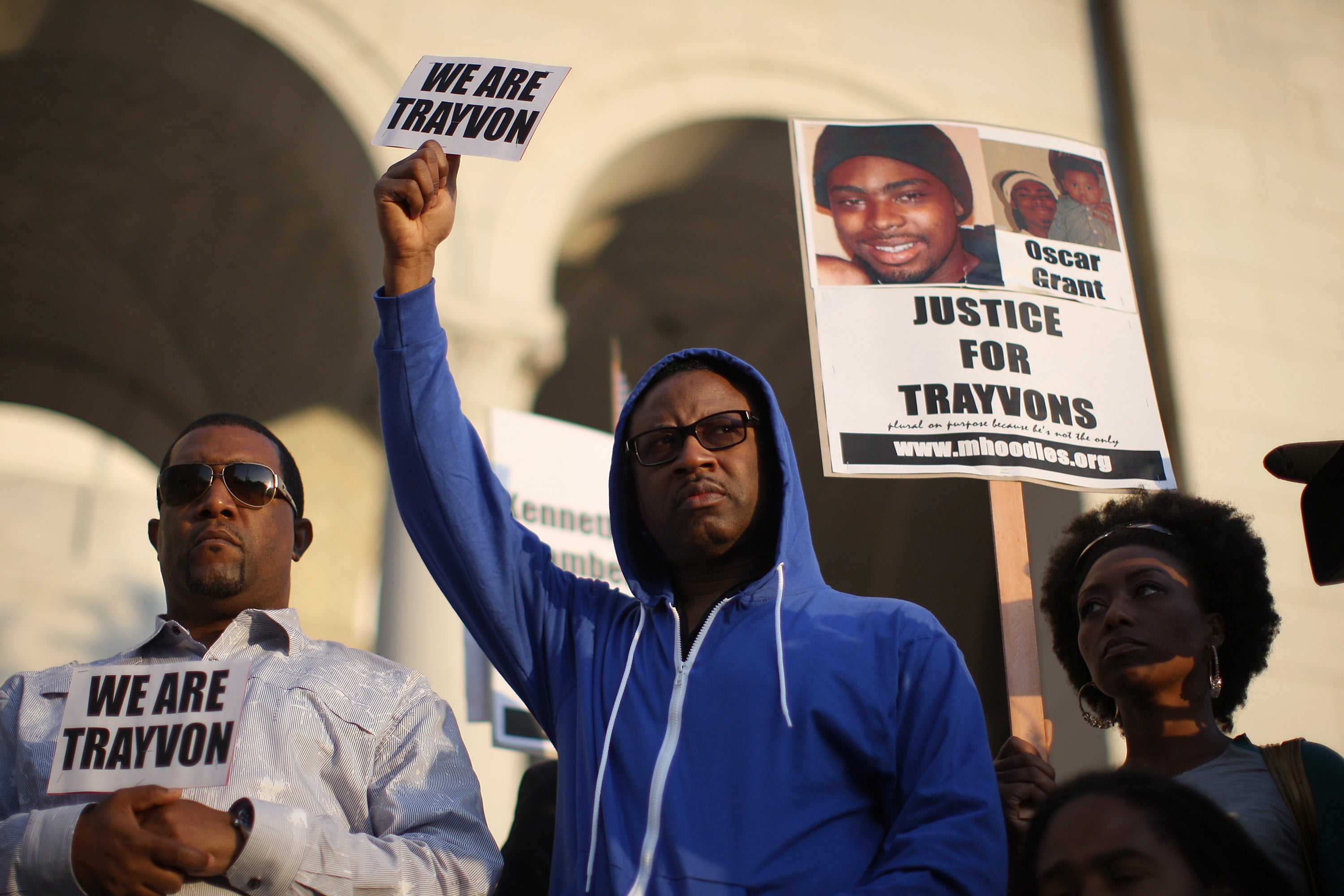
McGlockton says cases such as that of his son, and that of Trayvon Martin, were happening across the country. “Look at the case of Ahmaud Arbery in Georgia, it’s exactly the same thing,” he says.
“They shot and killed the man. But those three guys go home, for three months. Three months, these guys was home, relaxing, going on with everyday life,” he says.
“Look at what his mother had to do to build steam for the DA to finally say ok. And if that video hadn’t come out, those guys would still be free..”
McGlockton says he is a fan of faith and is aware that the Bible teaches people to forgive. He says he is unable to do that to the man who shot and killed his son. “I challenge any person to walk in my shoes. If someone takes somebody important from you like that, in the manner that he did, I’d not suddenly going to say ‘Hey I forgive you’. It’s not going to happen. Because I don't forgive you,” he says. “So, I deal with my faith but right now my heart is hating.”
McGlockton says he believes in the notion of an “eye for an eye”. As it is, last year Drejka’s lawyers appealed both his conviction and his sentence.
In December, a Florida appeals court upheld both, ruling that “the surveillance video, coupled with the eyewitness testimony that McGlockton was retreating, were sufficient to defeat Drejka's JOA (judgment of acquittal) motion. The jury, not the trial judge, had to resolve whether Drejka acted in self-defence.”
The family says Drejka should serve life without parole. “If you’re going to take mine, we’re going to take yours.”



